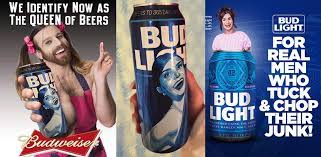The endorsement of transgender influencer Dylan Mulvaney sparked a backlash against Bud Light, leading to a sustained decline in sales for the brand. The boycott, which started with critics burning empty beer boxes and shooting at cans, has gained momentum due to a combination of factors.
The controversy surrounding the product, the involvement of political figures and celebrities, and the amplification of the issue on social media have all contributed to its expansion.
The initial response from the company, perceived as conciliatory by some LGBTQ advocates, further fueled frustration among the left. While boycotts typically have limited impact, this one has defied expectations, with experts noting that the anger surrounding the brand remains high for now.
Data from Bump Williams Consulting and Nielsen NIQ reveals that Bud Light has experienced a significant decline in sales, dropping nearly 25% during the week ending on May 13 compared to the same period the previous year.
This decline follows a 23% drop the week prior and a roughly 7% year-over-year decrease in sales for the week ending on April 9, which coincided with the start of the boycott against the brand.
In contrast, rival beers such as Coors Light and Miller Lite have seen a surge in sales. Coors Light experienced a sales increase of almost 23% over the week ending on May 13 compared to a year ago, while Miller Lite saw a 21% climb during the same period.
According to Anson Frericks, a former Anheuser-Busch executive, the beer market offers numerous alternatives to Bud Light at similar price points, with a wide range of options available in grocery stores and bars.
In response to the backlash triggered by Dylan Mulvaney’s endorsement video, the stock price of Anheuser-Busch InBev, the parent company of Bud Light, has declined by approximately 11%.
Despite this, an Anheuser-Busch spokesperson emphasized that Bud Light remains the leading brand in terms of volume and dollar sales nationally, acknowledging regional differences.
Following the boycott, the company shared a statement from CEO Brendan Whitworth on its website, though its contents were not specified.
In response to the controversy, CEO Brendan Whitworth stated, “We never intended to be part of a discussion that divides people. We are in the business of bringing people together over a beer.”
As a result of the backlash, the company took action by placing two executives who were responsible for the endorsement of Dylan Mulvaney’s Instagram post on leave, as reported by the Wall Street Journal.
However, this response received criticism from LGBTQ advocates who perceived it as a surrender to the backlash.
The Human Rights Campaign, the largest LGBTQ advocacy organization in the United States, suspended the company’s Corporate Equality Index score, which had previously been a perfect score of 100, as reported by USA Today.
“More and more people on the left are upset that the company is not supporting these progressive values in a more outspoken way,” Frericks said.
The scale and longevity of the backlash also underscore the intensity of anti-trans sentiment among conservatives, experts said.

The introduction of over 520 anti-LGBTQ bills in state legislatures, including more than 220 bills specifically targeting transgender and non-binary individuals, highlights the ongoing challenges faced by the LGBTQ community.
The issue has gained significant attention, with prominent figures like Rep. Marjorie Taylor Greene, Kid Rock, and Ted Nugent expressing criticism of Bud Light.
This divisive stance on trans rights has turned into a wedge issue, attracting widespread attention and making it a complex situation for Anheuser-Busch InBev.
Maurice Schweitzer, a professor at the University of Pennsylvania’s Wharton School of Business, emphasizes the polarizing nature of the debate and the attention it has garnered.
Anheuser-Busch InBev finds itself in a difficult position, facing frustration from both ends of the political spectrum.
Gerald Davis, a professor at the University of Michigan, acknowledges the challenge the company faces in navigating this complex landscape. Taking a stance that satisfies one side may not necessarily appease the other.
The company’s response to the boycott and the broader social implications will require careful consideration and strategy.
Finding a path forward that respects the diverse perspectives and values of its consumer base while addressing the concerns raised by LGBTQ advocates will be a complex task.

